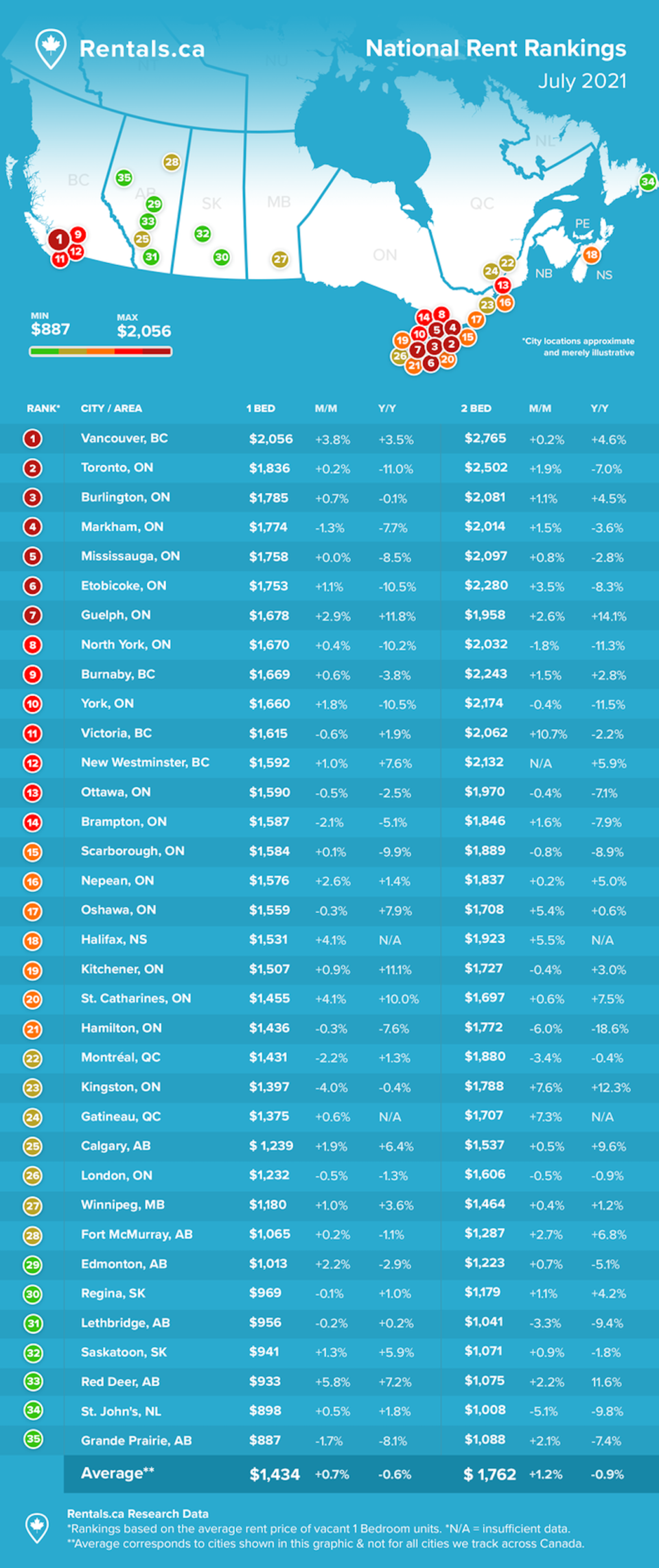Â鶹´«Ã½Ó³»continues to see the highest rent in Canada for both one and two-bedroom apartments.
Rentals.ca, an online apartment rental platform, has released its , which is based on data from its monthly listings.
The average rent in Canada increased for the second month in a row, rising to $1,721 per month after six straight months of decline.
The average asking rent for all Canadian properties listed on Rentals.ca in June grew by 0.7 per cent after rising 2 per cent month over month in May, according to company.
Vancouver continues to lead the list of 35 cities with the highest average monthly rent for a one-bedroom home at $2,056 and for a two-bedroom at $2,765.
Year over year, the average monthly rent for a one-bedroom in Vancouver is up 3.5 per cent and 4.6 per cent for a two-bedroom, explains Rentals.ca. Month over month, the average rent for a one-bedroom is up 3.8 per cent and the average rent for a two-bedroom is 0.2 per cent.
The average property listed for rent on Rentals.ca in June in the Vancouver Census Metropolitan Area (CMA) was offered at $2,152, an annual decrease of 2.8 per cent, but $11 a month more than May.
National Rent Rankings for July 2021
As the country continues to open up, the demand for rentals is expected to rise. Rentals.ca states that Canadians can "expect even larger rent increases in 2022, when most COVID restrictions are lifted, offices are open, immigration is back to pre-pandemic levels and most classrooms are in session."
Since so many people are working from home, the report notes that large units continue to outpace smaller rentals.
Single-family homes saw the sharpest increase in average monthly rent since the start of 2021, from $2,214 per month to $2,553 per month, up 15 per cent.
“After unprecedented declines during the pandemic, the domestic rental market is in recovery mode with many of Canada’s largest cities seeing rent growth accelerate in June," says Ben Myers, president of Bullpen Research & Consulting. "Unit showings are picking up, vacancies are declining and tenant demand is strong again in major downtown markets. However, it still could take eight to 15 months before most markets get back to their peak rent levels from late 2019.”
 Photo via Rentals.ca
Photo via Rentals.caRentals.ca data includes basement apartments, rental apartments, condominium apartments, townhouses, semi-detached houses and single-detached houses, where CMHC’s primary rental data only includes rental apartments and rental townhouses. CMHC collects some data on the secondary market, but it is reported separately.



